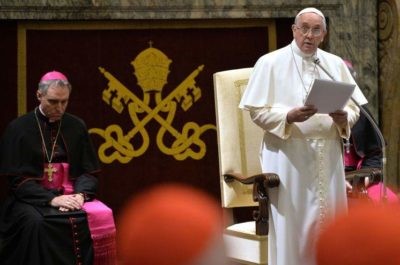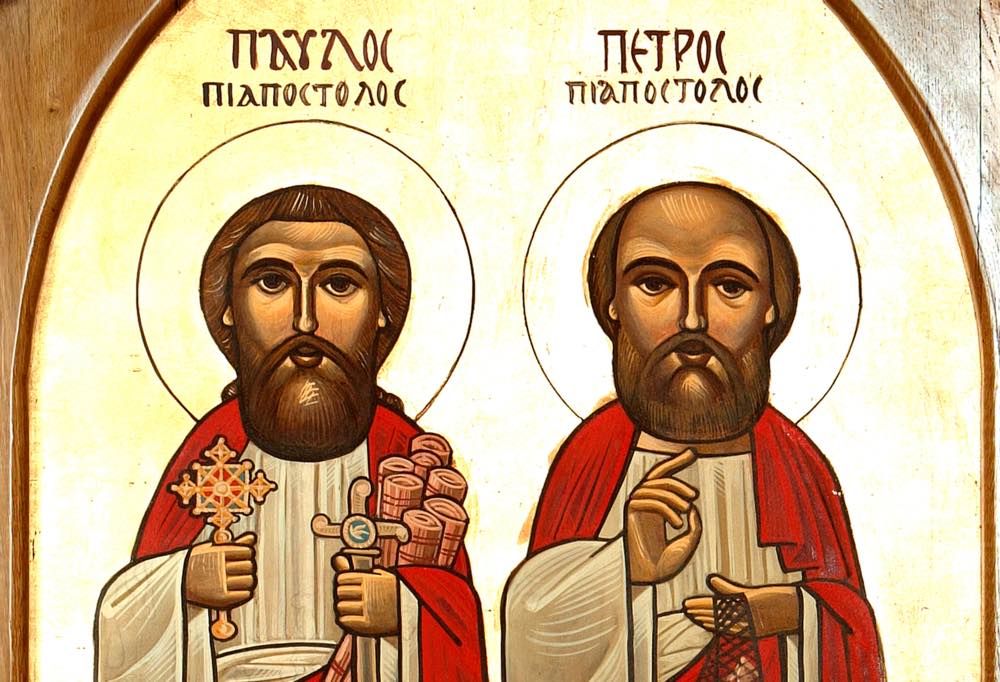– Vittorio Messori
I have already talked about it in books and in some articles, but there are cases in which, indeed, repetita iuvant. I really believe this is one of those cases. In fact, for a long time now, I have been convinced (and I have spoken several times) that the “law” that regulates Catholicism is the inclusive one, that of not giving up what is right and good, wherever it is. The strategy of “wanting everything.” In short, the rule of age, of “both this and that,” the opposites united in a synthesis, not always easy but necessary and precious. It is no coincidence that Catholicism is so called: “universal” or, better still – according to the exact etymology – katà òlon, in Greek: “according to the whole.”
On the contrary, the “law” that oversees Protestantism is that of the aut-aut, is an “either this or that.” An exclusive law, the one from which the whole Reformation was born and is founded: either the Bible or the Tradition, either Christ or the saints, either the Eucharist or the Word, either the magisterium of the Church or the freedom of each to interpret the Scripture, either the laity or the religious, and “the cursed sed etiam, the ‘but also,’ Roman,” said Karl Barth. It is no coincidence that the “heresy” is called such: from the Greek verb which means “to choose,” therefore the heretic is “the one who chooses,” it is not he who forces himself to preserve everything. Everything, of course, of what is good. As St Paul invites us to do.
Let us try to apply these categories to a decisive theme for the faith and particularly in evidence today [2016], at the time of an unprecedented “Jubilee of Mercy.” The Catholic age, here, has always been applied with extreme attention and doctrine (and , therefore, pastoral care) have always announced the justice of the Christian God and, at the same time, his mercy. Never have the two realities been separated. It was, if anything – especially in the seventeenth century – by two opposing groups: on the one hand, Jansenism, with its rigorism that insisted above all on a God judge; on the other hand, Jesuitism, whose insistence on mercy and, therefore, on the possibility of saving oneself by finding every foothold to excuse oneself, awakened the indignation of the Jansenist Pascal. The Jansenists were close to Protestantism, for whom original sin was not removed from the cross and man remains a sinner, whatever good work he does; salvation can only come from Christ who does not cancel but “hides” the guilt. Their opponents were close to the error of those who deny the same original sin or downplay its consequences. Always, in both cases, the Magisterium of the Church intervened which reiterated the need for “this but also that” and, therefore, condemned both rigorism and laxity….
In pastoral care, “balanced” Catholicism (and, therefore, authentic) has always united both the possibility of hell and the joy of heaven, open to the faithful by the bloody sacrifice of the Son of God himself. Consolation, therefore, but also threats of perdition. Among the works of spiritual mercy reported in the catechisms, is there not perhaps that of “admonishing sinners”?
It turns out that Jorge Bergoglio is a Jesuit, the first pope in more than five hundred years of history of the Company founded by Saint Ignatius. Let me be clear: it would be enough to read the Bull of induction of the Jubilee in its entirety and without prejudice to see that Francis’s insistence on mercy does not forget divine justice. Indeed, something that must have been overlooked by many – in the morning homily to Santa Marta on June 9 he explicitly said: “In matters of faith, to put the alternative” or this or that “is not Catholic! It’s heretic!” An explicit statement, this, that has reassured me. But – precisely in that pastoral perspective that is above all at heart – it should be noted, with realism, that the great mass of Catholics does not read the official documents of the Church. Indeed, today, more than ever, everyone is prey to journalistic simplification, multiplied by a thousand by the Internet. According to this simplification, what would be proclaimed by the pope is a sort of “free everyone!”, the removal of the boring memory of sin and the announcement of salvation for all, without going through a previous conversion. Approaching yes, the confessional – so often quoted by the Pope – but convinced that behind the grate (where it still exists) a priest is waiting for them, ready to understand everything and to excuse everything, without limits that denounce in him a ruthless Pharisee, a heartless legalist. Often, those who say they want to refer directly to Scripture, skipping ecclesial mediation, seem to forget the severe admonition of the psalm: initium sapientiae timor Domini.
I repeat it once again….: what was said above is not what Francis announced but it is what risks being understood by the Catholic masses, as confirmed by the daily experience of those who live not in presbyters and monasteries but among the people. Ours, therefore, are nothing but observations of opportunity, of pastoral tactics of simple hypotheses and, therefore, liable to error. As far as I am concerned, I am open to discussion: but not as the “apostles of dialogue” understand, … those who accept everything, except to be contradicted.
However, it will be opportune, with the times that run, that every conscious Catholic will discover – or recall if he already knows it – how much that Code of Canon Law that is the fundamental law of the Church decrees and that has been completely renewed in the light of Vatican II. Thus the second paragraph of Canon 212 says: “In proportion to the science, competence and prestige they enjoy, the lay faithful have the right, and indeed sometimes the duty, to express their thought to the sacred Pastors on what concerns the good of the Church and to make it known to the other faithful.” I don’t know if and how “science and prestige” concern me. What I know is that decades of study, reflection and personal experience have given me at least a little “competence” on the reality of faith and the Church. Giving me that right and, perhaps, duty, to intervene – obviously with prudence, calmness, respect – on similar themes.
(From Il Timone, July 2016. 2019©AP. Used with permission)


 Follow
Follow


